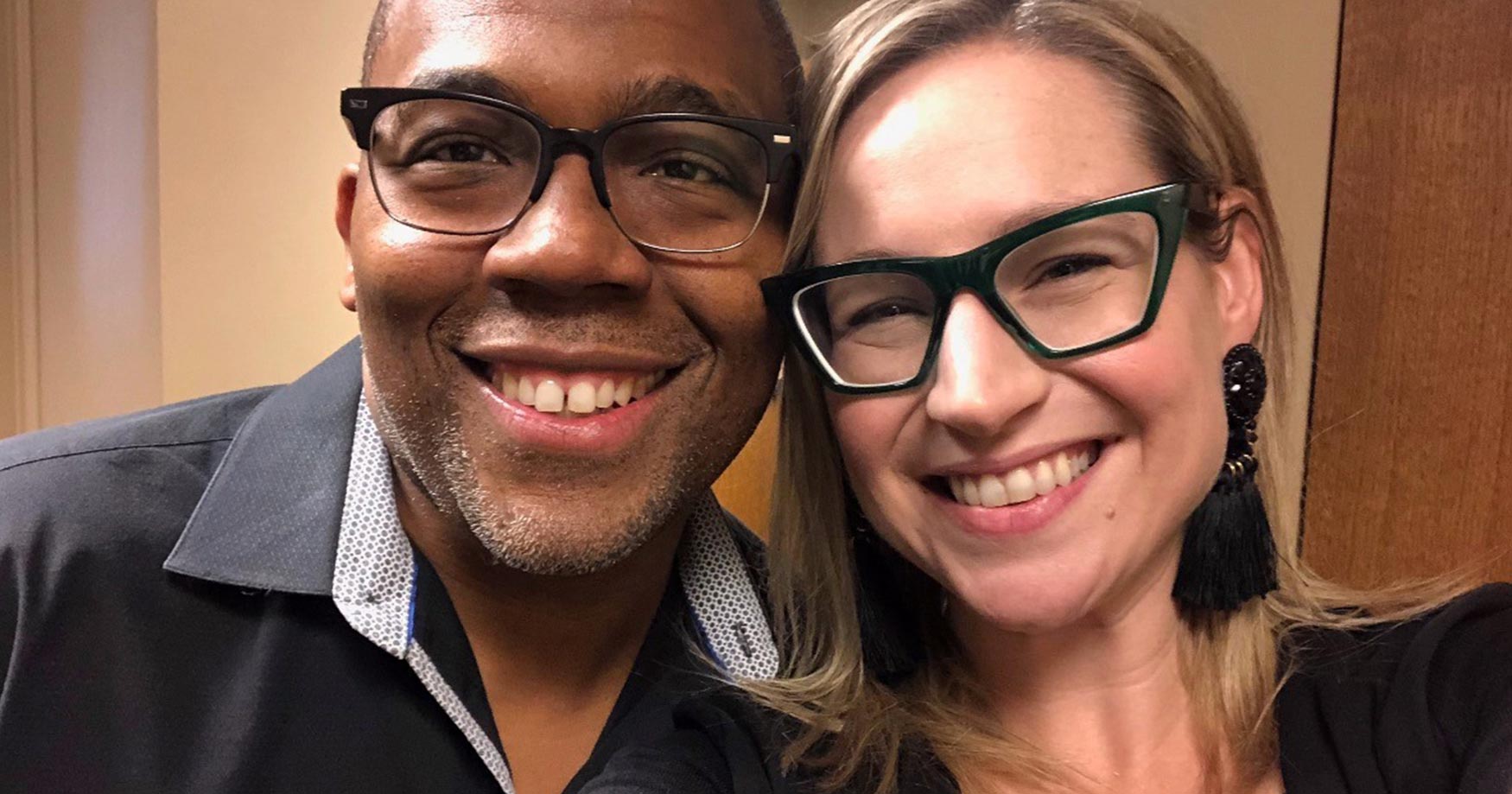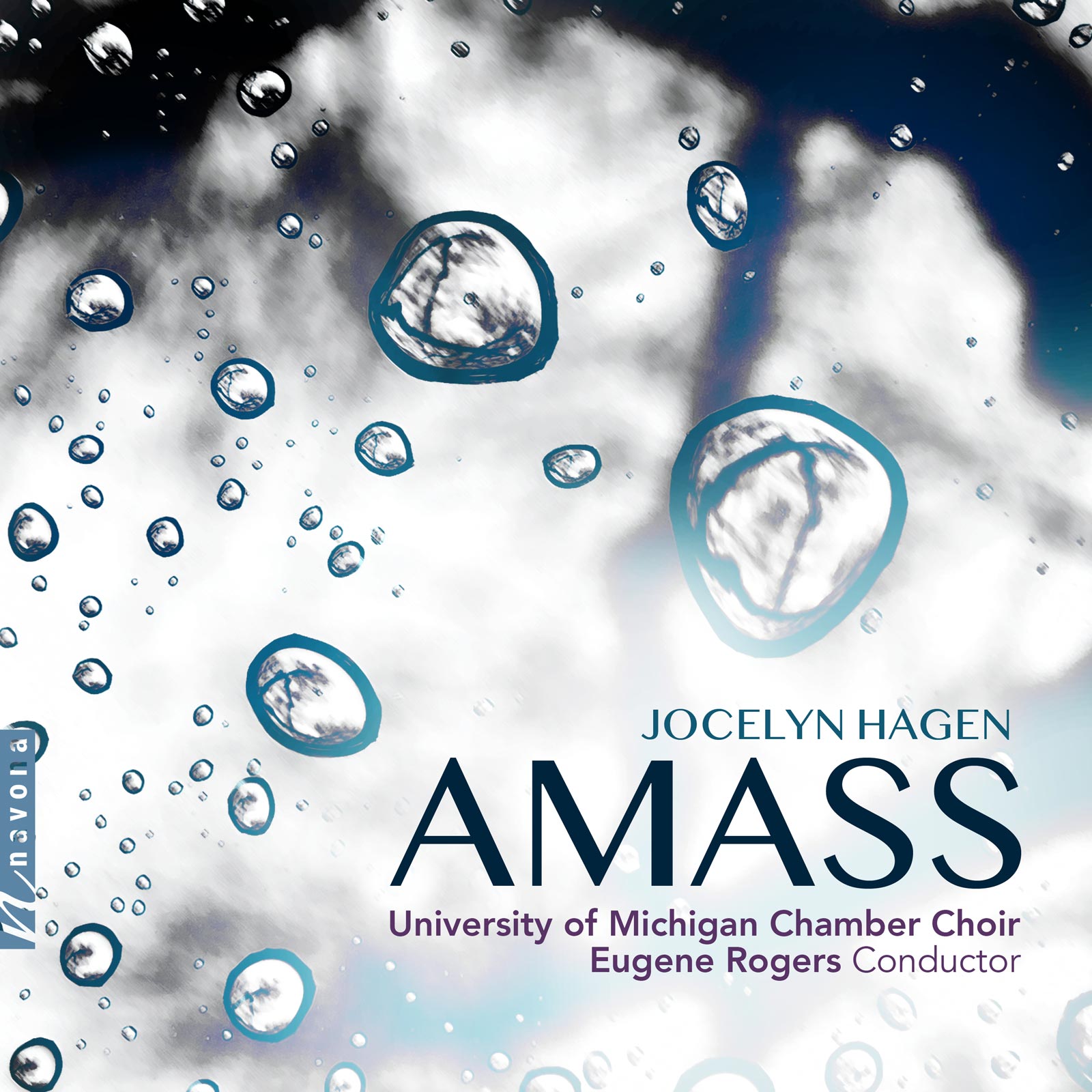GRAMMY-nominated conductor Eugene Rogers brings to life Jocelyn Hagen’s setting of the Roman Catholic Mass in AMASS. Incorporating the writings of various spiritual thinkers, the music is less about a particular religion and instead reaches toward the ineffable.
Today, Eugene and Jocelyn are our featured artists in “The Inside Story,” a blog series exploring the inner workings and personalities of our composers and performers. Read on to learn about their first musical experiences, passions outside of music, and more…
Tell us about your first performance.
ER: I was five years old when I had my first performance in the rural town of South Boston VA at Dan River Bethel Baptist Church. I still remember how nervous I was to stand before our local church community and sing He’s that Kind of Friend by Walter Hawkins (sung by Tremaine Hawkins). My fondest memory of that experience was how supportive my church family was to embrace my willingness to share with them. It was from that day that my musical journey began. I have been performing either as a soloist, conductor, chorister or pianist since that first solo performance. I still remember walking back to my seat, knees still shaking and all, and feeling the love in the room. I know that kind of warmth gave me the encouragement I needed to keep pursuing my musical passion. It is also why I believe the message of Hagen’s amass resonates so deeply to me and my personal faith.
What advice would you give to your younger self if given the chance?
ER: The younger Eugene had no idea about how thrilling and how much work being a professional musician would be. I would tell myself to never shy away from all musical and life experiences, even when trying to be more focused on one’s craft and artform. I would also tell myself to be patient, never burn a bridge, and trust the journey and process. All lessons (good and bad) will eventually play a part in the outcome. As a friend of mine would often say, “you will learn more from your failures than your successes,” so hang in there, look for the lessons. Our lessons are ultimately to help us better serve the music and the people we are fortunate enough to lead.
What emotions do you hope listeners will experience after hearing your work?
ER: Jocelyn Hagen’s amass is an eclectic mix of styles and colors that takes the listener on quite a thematic and stylistic journey. She finds a way to highlight each part of the ensemble, whether individually or collectively, that allows the work to have many poignant musical moments. I hope listeners will enjoy the experience of the highs and lows of the vastly disparate colors Hagen offers as she presents this musical opus which highlights a faith experience “where all are welcome.” My goal when working with the performers was to have them exaggerate and relish in Hagen’s ideas so that regardless of one’s preference of styles, there can be artistic respect given to the passion, drama, and musical excellence. I fell in love with Jocelyn’s piece when I heard the premiere in the Twin Cities by the Singers. I remember telling her that evening that my goal was to perform her work at Michigan, not knowing that one day we would collaborate on the first recording many years later. I hope our listeners fall in love with the work as much as I did almost 15 years ago.
What are your other passions besides music?
ER: If I’m not conducting or teaching, I am probably out with family or friends at one the best restaurants in town. I get such joy out of breaking bread with family and friends and eating an exquisite meal over great conversation. Working on the other side of the country from my family makes the time we have together extra special, so spending quality time with them over great food is not only an important part of my culture, but truly one of my great joys. Other passions in my life include traveling and taking long walks with my spouse, reading great fiction novels and autobiographies, and binge watching a great drama series.
What were your first musical experiences?
JH: I believe my first musical experiences were actually in utero. While my mother was pregnant with me, she was regularly playing piano duets with her cousin, who was also pregnant at the time. After the babies were born, the two women continued to get together to practice, and my mother said she placed me right next to the piano and I was transfixed with the sounds: quiet and alert. She said it was so evident that I “remembered” the music, and was hearing it anew in these surroundings. Sitting at the piano continues to be one of my happiest places.
What have been your biggest inspirations on your musical journey?
JH: I’m inspired by so many things. I appreciate beautiful music that is also virtuosic. I love live performance in intimate settings. And I’ve spent much of my life singing in choirs. Being a part of a huge sound like that never ceases to thrill or excite me.
What are your other passions besides music?
JH: I’m a passionate advocate for women in creative enterprises. I mentor many young women composers, not only with composition lessons, but also with career and publishing advice. I love playing “matchmaker” and helping young talent connect with conductors and performers who will premiere their works.
If you weren’t a musician, what would you be doing?
JH: I became a composer because I honestly couldn’t imagine doing anything else with my life. I think it takes that kind of tenacity to succeed as an artist. It’s who I am, and I know I would have been miserable if I hadn’t taken all the risks to try.
AMASS
AMASS is available now from Navona Records. Click here to visit the catalog page and explore this album.
The views and opinions expressed in this post are those of the artist and do not necessarily represent or reflect the views and opinions held by PARMA Recordings LLC and its label imprints, subsidiaries, and affiliates.






